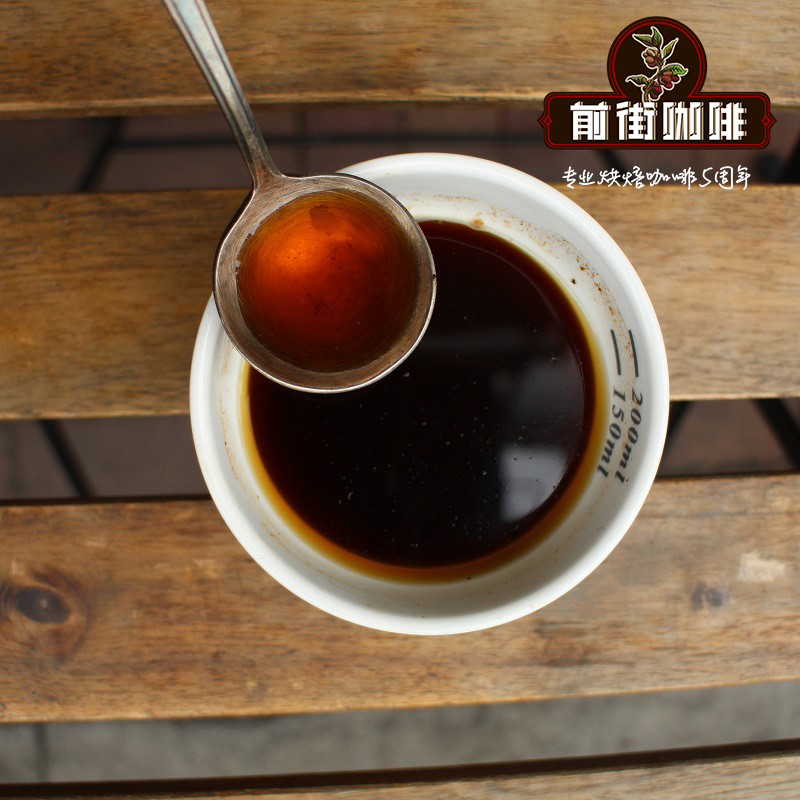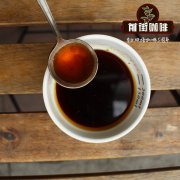Introduction to Finca Brumas del Zurqui of Blumas Manor in Costa Rica

Professional coffee knowledge exchange more coffee bean information please follow the coffee workshop (Wechat official account cafe_style)
Finca Brumas del Zurqui Manor has its own family-owned raw bean processing plant, which originally means "misty valleys". In addition to growing coffee, the estate also helps produce nearby estates and coffee farmers.
Since 1880, Brumas won the Costa Rican National Coffee Competition in 2006, and the "honey treatment" of the manor has been valued by bean merchants all over the world, so since 2007, Brumas's coffee beans are always sold out before the competition.
Costa Rican coffee has always been regarded as the perfect type of classic flavor, balanced, clean, mild is his tone, this micro-batch of Brumas Manor processing plant for Centro Manor, Brumas Manor Juan Ramon Alvarado family set up the Brumas processing plant (Brumas del Zurqui) in 2004, in 2016 Costa Rican COE Cup (third runner-up) processing plant He currently has two estates, Zamora and La Nena, and coffee varieties such as bourbon, Kaddura, geisha and others.
Brumas Manor is the pioneer of 'micro-processing plant! COE always wins', full of dried fruit aromas, with sweet peach, plum, raisin flavor, rich sweet and sour taste, smooth taste, finish with honey sweet taste.
Juan Ramon Alvarado Rodriguez is a fourth-generation coffee farmer whose family coffee business dates back to 1890 when his great-grandfather bought a piece of land in San Isdro, Heredia, near the capital San Jose. Because the valley was covered with clouds all the year round, the farm was named Brumas del Zurqui, which means "valley full of clouds". ▲ in 1999, Juan just graduated from EARTH Agricultural University. The following year, the price in the international coffee market collapsed, and the coffee business, which had been run by the family for a hundred years, encountered a great crisis. The crisis has brought a turn for the better. Juan believes that only by creating the added value of coffee beans can we raise the price of products and avoid falling into bloody competition at low prices.
Juan introduced micro-processing equipment Penagos from Colombia and began to deal with raw coffee beans on his farm. Penagos only needs a very small amount of water to remove the peel and pectin. Juan's professional training at EARTH Agricultural University was brought into full play at this time. He retained part of the pectin for sun drying, and this is the origin of Costa Rican "honey treatment"!
In 2004, Juan established the Blooms processing Plant (Brumas Del Zurqui Micromill). In 2006, it won the first place in the National Coffee Competition. And this "Micromill micro-processing plant trend" has also gradually spread in Costa Rica, there are now more than 150 micro-processing plants in the country!
Qianjie recommended cooking parameters:
Hand punch: V60 filter cup small Fuji R440 grinding 3.5, water temperature about 90 degrees
The recommended grinding degree of normal pressure is 4 and the water temperature is 90 ℃.
The recommended siphon grinding degree is 4, and the water temperature is 90 ℃ ~ 91 ℃.
The pressure grinding degree of Philharmonic is recommended to be 3.5, and the water temperature is 90 ℃.
Important Notice :
前街咖啡 FrontStreet Coffee has moved to new addredd:
FrontStreet Coffee Address: 315,Donghua East Road,GuangZhou
Tel:020 38364473
- Prev

Zambian Coffee producing area Munali Hill Munanicu Mubuyu Estate Jasper Manor
Professional coffee knowledge exchange more coffee bean information please follow coffee workshop (Wechat official account cafe_style) Zambian coffee pastoral Nanichu Jasper Manor SL28 AA single variety honey treatment of African coffee producing countries, Ethiopia, Yemen, Kenya and so on are regarded as first-line boutique bean producing countries, others such as Rwanda, Tanzania, Zimbabwe, Zambia
- Next

Introduction of Costa Rican Lemon Manor introduction of flavor characteristics of Costa Rican coffee
Professional coffee knowledge exchange more coffee bean information Please follow Coffee Workshop (Wechat official account cafe_style) Lemon Manor is from the Tara Pearl producing area with the highest latitude in Costa Rica, coffee cherries are handled by the volley processing plant, which has more than 60 years of coffee processing experience, and the sun uses exquisite African scaffolding to make the coffee flavor as a whole.
Related
- Does Rose Summer choose Blue, Green or Red? Detailed explanation of Rose Summer Coffee plots and Classification in Panamanian Jade Manor
- What is the difference between the origin, producing area, processing plant, cooperative and manor of coffee beans?
- How fine does the espresso powder fit? how to grind the espresso?
- Sca coffee roasting degree color card coffee roasting degree 8 roasting color values what do you mean?
- The practice of lattes: how to make lattes at home
- Introduction to Indonesian Fine Coffee beans-- Java Coffee producing area of Indonesian Arabica Coffee
- How much will the flavor of light and medium roasted rose summer be expressed? What baking level is rose summer suitable for?
- Introduction to the characteristics of washing, sun-drying or wet-planing coffee commonly used in Mantenin, Indonesia
- Price characteristics of Arabica Coffee Bean Starbucks introduction to Manning Coffee Bean Taste producing area Variety Manor
- What is the authentic Yega flavor? What are the flavor characteristics of the really excellent Yejasuffi coffee beans?

